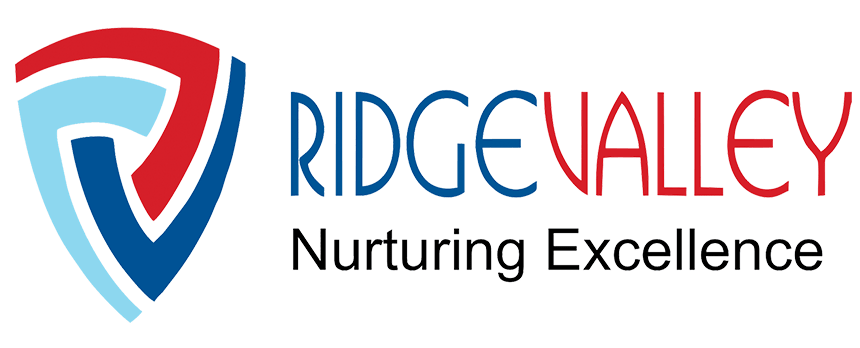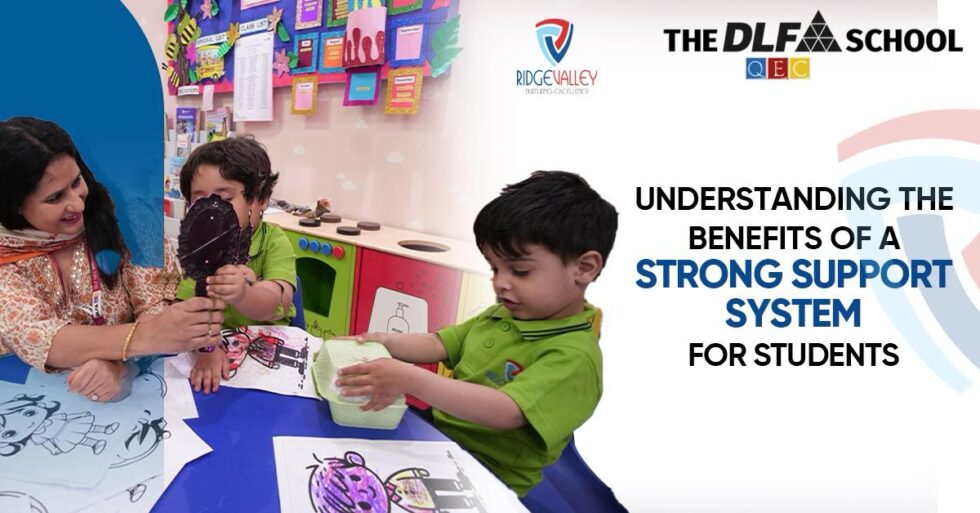Introduction:
When it comes to a child’s education, the significance of a robust support system cannot be overstated. At Ridge Valley, the Best School in Gurgaon where a strong support system encompasses the various resources, both within and outside the school, that work together to foster academic success, personal development, and emotional well-being. The role of a support system in a student’s life is pivotal, particularly during their formative years, when they are navigating a variety of challenges both academically and personally.
A supportive school environment creates a foundation for students to thrive, excel, and manage the pressures of schooling. This article explores the multifaceted benefits of a strong support system for students, highlighting how it can lead to improved academic performance, mental well-being, and personal growth.
About Us:
At Ridge Valley School, we understand that the foundation of student success lies in a strong support system. Our dedicated team of educators, counselors, and mentors work together to provide comprehensive support to every student. With a focus on personalized learning, we ensure that no child is left behind. Along with academic support, we emphasize mental and emotional well-being, offering counseling services and stress management workshops to help students navigate their school journey. Our vibrant extracurricular offerings, such as drama, dance, and sports, complement our academic programs, providing students with opportunities for holistic development. Regular school events like parent-teacher meetings and leadership training programs also contribute to strengthening the connection between the school and families. The School fosters an environment where students feel safe, valued, and empowered to excel both academically and personally, ensuring they are fully supported at every step of their growth.
1. Academic Success through Structured Support
One of the most significant benefits of a support system is its direct impact on a student’s academic performance. When students have access to support from teachers, counselors, and peers, they are more likely to perform better in their studies.
- Personalized Attention: A support system often includes teachers who are attentive to individual learning needs. Whether it’s extra tutoring, personalized assignments, or one-on-one help, students receive the guidance they need to succeed. This is particularly important for students who may struggle in specific subjects or those with learning difficulties.
- Tutoring and Study Groups: Schools that offer peer tutoring or the opportunity to collaborate with classmates in study groups foster an environment where students can help each other understand challenging material. This collaborative effort not only boosts academic performance but also fosters a sense of teamwork and shared responsibility.
- Access to Resources: With a strong support system, students often have access to a wide range of educational tools and resources, such as digital libraries, study materials, and learning platforms. This ensures that every student, regardless of their background, has the tools needed to succeed academically.
A well-supported student feels more confident in their learning journey, allowing them to approach challenges with resilience and motivation, which ultimately results in better academic performance.
2. Emotional and Psychological Support
In today’s fast-paced and competitive world, students often face emotional and psychological challenges. A strong support system plays a crucial role in providing the necessary emotional and psychological support to help students navigate these challenges.
- Counseling Services: Many schools offer dedicated counselors who provide students with the space to express their concerns and seek advice. Counselors are trained to assist students with various issues, such as stress, anxiety, relationship problems, and even career advice. This type of support ensures that students don’t have to face their struggles alone.
- Mental Health Awareness: A school that prioritizes mental health as part of its support system helps reduce stigma and normalizes discussions about mental well-being. When students feel that their mental health is taken seriously, they are more likely to reach out for help when needed, which leads to better emotional regulation and coping mechanisms.
- Peer Support: Students also benefit from peer-to-peer emotional support. Building close-knit communities and friendships within the school helps students feel a sense of belonging and reduces feelings of isolation. When students have friends and peers to lean on, they develop better emotional resilience.
The emotional support provided by a strong system helps students cope with the ups and downs of school life, reducing stress and promoting healthier emotional development.
3. Personal Development and Confidence Building
A strong support system doesn’t just focus on academic success—it also plays a vital role in fostering the personal development of students. Personal growth is essential for a child’s well-being and future success, and schools that invest in comprehensive support systems can empower students to achieve their potential.
- Self-Esteem and Confidence: When students are encouraged and supported in all their endeavors, whether academic, social, or extracurricular, their self-esteem and confidence grow. Positive reinforcement from teachers, peers, and family members helps them believe in their abilities and face challenges with courage.
- Extracurricular Activities: Schools with robust support systems also offer a wide range of extracurricular activities, such as sports, arts, and leadership opportunities. These activities help students develop new skills, build self-discipline, and discover their passions, all of which contribute to personal growth.
- Leadership Skills: A supportive school environment encourages students to take on leadership roles in clubs, teams, and events. By nurturing leadership abilities, schools empower students to take initiative, make decisions, and develop critical thinking skills. This kind of personal development is invaluable as students transition into adulthood and start making decisions about their careers and future.
By focusing on personal development and confidence-building, a strong support system ensures that students are not only successful academically but also well-equipped to navigate the challenges of life with resilience and a strong sense of self.
4. Improved Social Skills and Peer Relationships
The social aspect of schooling is an often-overlooked benefit of a strong support system. Positive relationships with peers can significantly enhance a student’s school experience, contributing to emotional well-being and academic success.
- Peer Relationships: Students who feel supported by their peers are more likely to engage in cooperative learning, share knowledge, and feel comfortable participating in class discussions. A supportive peer network reduces bullying and helps students build trust and empathy, which are vital social skills.
- Socialization Opportunities: Extracurricular programs, such as team sports, music, and drama, provide students with opportunities to socialize and build friendships outside of the classroom. These activities not only promote teamwork and collaboration but also encourage students to respect diverse perspectives and values.
- Conflict Resolution: A strong support system teaches students effective conflict resolution skills, helping them deal with disagreements in a healthy and productive manner. By providing mediation and guidance, schools ensure that students learn to resolve conflicts in a manner that fosters understanding and cooperation.
Strong social connections formed through supportive environments lead to improved interpersonal skills, a greater sense of belonging, and stronger relationships both in and out of school.
5. Building Resilience and Coping Strategies
The ability to cope with failure, disappointment, and stress is essential for long-term success, both in academics and in life. A strong support system teaches students how to build resilience and manage setbacks.
- Encouraging a Growth Mindset: Schools that focus on nurturing resilience encourage students to see failure as a part of the learning process. By adopting a growth mindset, students learn that effort, persistence, and learning from mistakes lead to success.
- Coping Mechanisms: Through counseling services, peer support, and mentorship programs, students are taught practical coping mechanisms to manage stress and anxiety. Schools that prioritize these strategies equip students with the emotional tools they need to handle the pressures of academic life and beyond.
- Dealing with Setbacks: Whether it’s a poor grade, a personal loss, or challenges in extracurricular activities, students need the emotional resilience to face setbacks. A strong support system provides the encouragement and tools necessary to bounce back from failures, stay motivated, and continue moving forward.
By focusing on resilience, schools create an environment where students feel capable of overcoming challenges and setbacks, which is essential for both academic success and personal growth.
6. Parental Involvement and Collaboration
A strong support system also includes the involvement of parents, as they play a critical role in a child’s development. Schools that encourage parent-teacher collaboration ensure that there is an open line of communication between families and the school, which fosters a unified approach to supporting the child.
- Parent-Teacher Meetings: Regular meetings between parents and teachers provide opportunities to discuss the child’s progress and areas for improvement. This communication ensures that the child’s academic and emotional needs are being met both at home and at school.
- Parent Support Groups: Schools that offer support groups for parents help them share advice, resources, and experiences with one another. These groups can create a sense of community and support for parents, making them feel more involved in their child’s educational journey.
- Collaborative Goal-Setting: Schools that work closely with parents to set academic and personal development goals for their children create a stronger, more focused support system. This ensures that both parents and educators are working toward the same objectives for the child’s success.
Parental involvement in the support system strengthens the partnership between school and family, ensuring that the student’s development is well-rounded and consistent.
Conclusion:
A strong support system for students is a multifaceted network that includes academic guidance, emotional support, personal development opportunities, socialization, resilience-building, and parental collaboration. When students feel supported in all these areas, they are more likely to succeed academically, develop strong social skills, and emerge as well-rounded individuals who can handle the challenges of life.
At Ridge Valley, the top schools in gurgaon where schools that prioritize providing a comprehensive support system are not only preparing their students for academic success but also for success in life. By fostering a nurturing environment where students feel safe, valued, and encouraged, these schools lay the foundation for a brighter future for every student. Ultimately, a strong support system is the key to helping students achieve their full potential, both in school and beyond.











